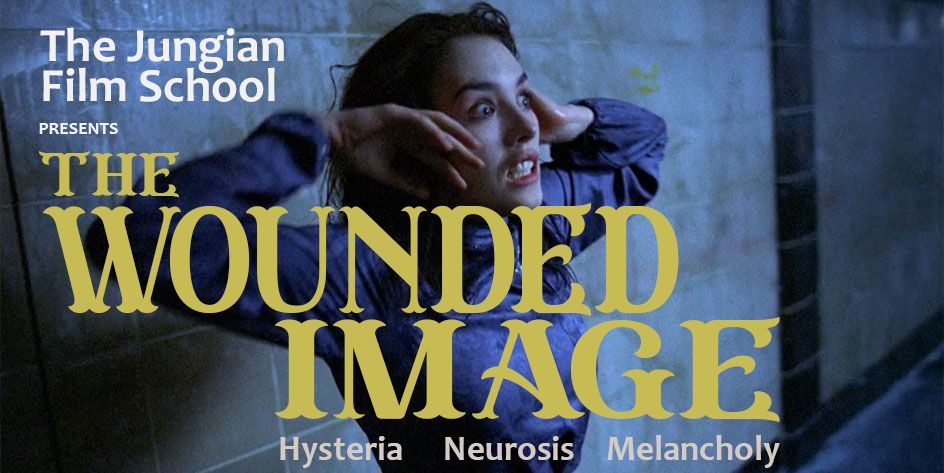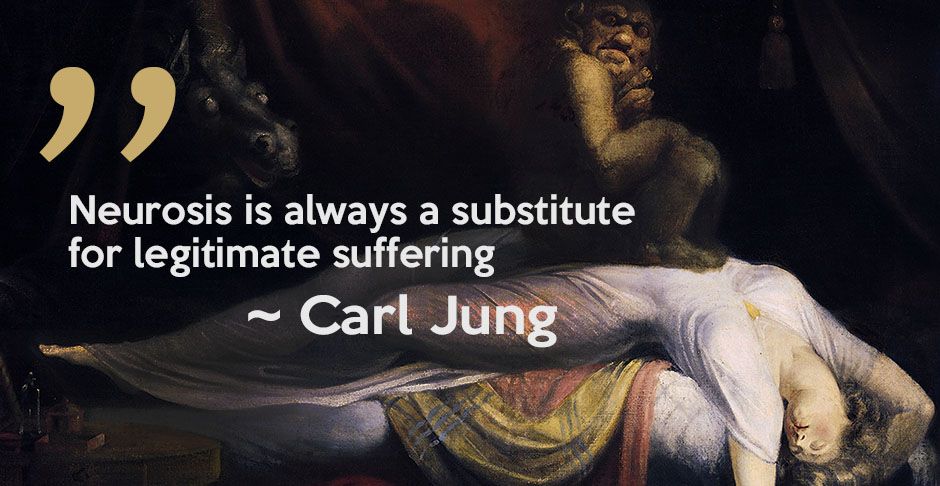
"The hysteric, whose body is transformed into a theatre for
forgotten scenes, relives the past, bearing witness to a
lost childhood that survived in suffering."
We invite you into a cinematic descent. Across six weeks, guided by a faculty of psychoanalysts and film scholars, we’ll enter the spaces where film meets psyche, where image fractures, and meaning bleeds.
From the historical legacy of hysteria to the spectral melancholy of modern cinema, we explore the female psyche not as pathology but as poetry. Why have these terms disappeared from clinical language? What do they still reveal? What do they conceal?
Each session pairs film analysis with a psychological inquiry bringing the themes into dialogue with your own lived experience through reflective and applied exercises.
This is not a course about diagnosis. This is an act of excavation.
Encounter...
- International faculty of analysts, and film scholars.
- Films that haunt, provoke, and mirror internal states
-
Discussions covering the themes under discussion from a psychological, narrative,
artistic and symbolic perspective. - Exercisers to integrate the material into your own inner work and process.
Explore...
- How cinema preserves the language of suffering long after psychology forgets it.
- Female subjectivity, madness, and myth, on screen.
- Psychoanalytic readings of films.
- The symbolic and mythological dimensions of hysteria, melancholia, and neurosis
- The ethics of looking: voyeurism, fragmentation, and the wounded gaze.
Experience...
This programme is for those drawn to the edge — the intersection of psyche and screen, of image and emotion.
You don’t need a background in psychology or film. Just curiosity, and a willingness to sit with complexity.
Zoom sessions will be presented each Saturday at 5 PM London/ 12 PM (noon) New York time. Lectures are 90 minutes and recorded for students who cannot attend live.
Bonus Lecture on the film Melancholia (2011), presented by Stefano Carta available upon registration.

Presentation Details
17 May, 2025
'THE NOISY TYPE': FEMALE HYSTERIA ON SCREEN presented by Anthony McKibbin
A Woman Under the Influence (1973)
The Piano Teacher (2001)
Possession (1981)
Tar (2022)
Synopsis
The question of hysteria in women has been around for well over two thousand years, with Hippocrates using the term which is Greek for the uterus. It has been a common enough topic in cinema during its 130 year history, and we will be looking at how film, for good and ill, has presented hysterical states in women on screen — from A Woman Under the Influence (1973) to Tar (2022), from Possession (1981) to The Piano Teacher (2001). We will also look at the different ways Jung and Freud approached the subject and how some films lean towards the extrovert claims of the former, others to the traumatic and unconscious pull of hysteria’s source in the latter. Both thinkers would have been inclined to acknowledge it as a disorder of the ‘noisy type’, as Freud proposed, and thus a very good subject for a medium that has often lent itself to the melodramatic and the overblown. Not all the characters we will discuss “lives out a chaos that is destroying her”, as David Thomson describes Mabel in A Woman Under the Influence. But whether it is Erika Kohut in The Piano Teacher, or Lydia Tar in Tar, Nina in Black Swan (2010), or the titular character in Malina (1991), film often illustrates what Elfriede Jelinek has called the chaos of the organs, with no organ potentially deemed more chaotic than the uterus and the hysteria that is deemed to ensue.
24 May, 2025
THORNS IN HER SIDE presented by Nan McAughey
Antichrist (2009)
Synopsis
The film Antichrist offers a mythic, somatically charged and almost unbearable exploration of what
31 May 2025
THE FRAGILITY OF SELF IN THE "AS-IF" PERSONALITY: IMPOSTER SYNDROME AND ILLUSIONS IN THE MIRROR presented by Susan Schwartz
The Hours (2002)
Synopsis
The ‘as-if’ person enacts both the mirror and the mask by presenting in artifice. Known for a slickly contrived persona/ego image, behind it the ‘as-if’ person withdraws into fantasy and illusionary worlds. The issues affect intimacy with oneself and others due to their difficulty being present. This effects not belonging, addictions, aging, the cultural influence of social media, body image and split selves. These aspects manifest culturally where reality and illusion are often blurred. The purpose of exploring the ‘as-if’ and imposter personality is to nurture awareness for what can be replenishing and regenerative to the person and culture.
7 June 2025
FILMS ON THE VERGE OF A NERVOUS BREAKDOWN THAT ARE LOST IN TRANSLATION presented by Toby Reynolds
Women on the Verge of a Nervous Breakdown (Almodovar, 1988)
Lost in Translation (Coppola, 2003)
Synopsis
Initial onscreen depictions of female hysteria, melancholy and neuroses tended to be predicated on showing women as either victims of mental health breakdown (The Three Faces of Eve: Johnson, 1957), often triggered by childhood trauma, or caused by experiencing deliberate abuse at the hands of callous males (e.g. Gaslight, Cukor, 1944). It is the contention of this talk that contemporary cinematic representations of women’s mental health struggles have now evolved to demonstrate how female hysteria, melancholy and neuroses are, in part, natural and understandable reactions to oppressive gender ideologies and can be analysed and understood as such from a post-Jungian perspective. Further analysis of the chosen texts will demonstrate how both screwball comedy and slow cinema not only undermine these gender ideologies, but also reveal the deeper psychic resilience of the female protagonists within their contemporaneous settings.
14 June 2025
POSSESSION: THE BIRTH OF HYSTERIA presented by Cristina Álvarez López & Adrian
Martin
Possession (Andrzej Żuławski, 1981)
Synopsis
Anna (Isabelle Adjani) is a woman who starts exhibiting increasingly disturbed behaviour after asking her husband, Mark (Sam Neill), for a divorce. Initially, Mark believes that she is having an affair with another man, and hires a private investigator to follow her. But his suspicions of infidelity soon give way to a more sinister scenario… Polish director Andrzej Żuławski said he wrote the screenplay for Possession as a response to his own, difficult divorce from actress Malgorzata Braunek. The film chronicles the crisis of a couple, the woman’s descent into madness, and the man’s fragile coping mechanisms in facing this situation. Blending psychological drama, thriller, and horror, Possession presents us with an extreme formal approach defined by an unusual violence, intensity and viscerality. In our presentation we will explore different definitions and conceptualisations of hysteria, in order to see how they fit both Żuławski’s cinematic style and the behaviour of his characters. We will look at the couple’s marital crisis—trying to elucidate the meaning of the psychological disturbances it precipitates. We will also pay attention to the ways in which Żuławski uses horror and supernatural tropes as metaphors to address psychological conflicts.
21 June 2025
THE FAUSTIAN BARGAIN AND THE VAMPYRE AS SYMBOLS OF "HYSTERIA" & NEUROSIS presented by Johann Mynhardt
Nosferatu (2024)
Synopsis
While we are shown classic depictions of the outdated diagnosis of “female hysteria” in Eggers re-imagining of this silent-era classic, we will look at how this broad category of symptoms may still speak to a highly symbolic archetypal motif relevant to the contemporary psyche. We will explore the vampyre as a nuanced depiction of the shadow and the implications of this for the subject as well as culture as a whole. With Eggers interpretation including themes from Dracula we will examine the symbolism of the Faustian Bargain as entered into between Ellen and Count Orlok and how this might enhance our understanding of neurosis, offering us a possible key to the journey of individuation.
Registration
Registration now closed. Email anja@appliedjung.com for more information.
Single payment of U$250 or a payment plan option of two monthly payments of U$135 each.
Faculty
Toby Reynolds
Toby Reynolds is an independent film scholar specialising in filmic masculinities, auteurs, film history, and post-Jungian screen perspectives. His teaching includes regular lectures on Jung and Film for the University of Essex as well as previous CAJS Film Schools. Toby’s first book, The American Father Onscreen: A Post-Jungian Perspective is available from Routledge, and he has also had chapters published on American Beauty for The Routledge International Handbook of Jungian Film Studies, and on the Jason Bourne franchise for Gender and Action Films (Emerald Press). His cinema podcast on under-rated and under-appreciated films, Dr Kino’s Film Emporium, is available from a number of major streaming sites. He also likes good coffee, a nice Shiraz, and vintage leather jackets, preferably black.
Faculty
Cristina Álvarez López
Cristina Álvarez López is a film critic, writer, filmmaker, occasional teacher, and general practitioner of image sorcery. During childhood, she became fascinated by the power of words and images; most of her adult life has been spent pursuing different ways of approaching and combining them. She started to write professionally about film in 2009. She has contributed chapters to a dozen books, her texts and audiovisual essays have regularly appeared in print and online magazines, and she has lectured at different schools and universities. In 2017, she encountered the writings of C. J. Jung for the first time, while collecting stones at the beach. Since then, she has been steadily reading, wrestling with and incorporating Jungian and post-Jungian psychology to her work and life (with special interest in tracking and elucidating the meaning and value of crisis, depression and "the dark night of the soul"). In 2020, she began making little films and experimenting with different kinds of image-work. Over the last years, she's cried a lot—but (amazingly enough) she has also started remembering her dreams. In 2022 she decided to concentrate her efforts on pursuing her creativity independently, at her blog Laugh Motel.
Faculty
Johann Mynhardt
Johann Mynhardt is an Applied Jungian Practitioner at The Centre for Applied Jungian Studies. He first encountered Jung’s ideas in his early twenties while pursuing interests in comparative religion and philosophy. In 2013 he enrolled as a student at the Centre attending programmes such as The 12 steps to individuation, The Conscious Living Programme and later, Clinical Concepts, which deepened his theoretical knowledge of Jung’s work and allowed him to experience the transformative power of Jungian psychology first-hand. Having worked as a director / producer in the film industry Johann’s combined passions for film-making and Jungian theory have found a fertile partnership in the Centre’s Jungian Film School. His current field of interest lies in the application of depth psychology as an approach to integrating psychedelic experiences. Johann enjoys an eclectic variety of interests from combat sports to Zen and freediving, all of which contribute to his individuation process. He sees Jung’s body of work as forming the basis for a philosophy of life.
Faculty
Adrian Martin
Adrian Martin is a film & arts critic, writer, teacher, speaker, and maker of audiovisual essays with Cristina Álvarez López. He appears to have written every day of the past 45 years, judging from his ever-expanding website: www.filmcritic.com.au. From his 10 published books, his essay collection spanning 1982 to 2016, Mysteries of Cinema (Amsterdam University Press 2018/University of Western Australia Publishing 2020) reveals most clearly his lifelong interest in dreams, trance states, metamorphoses, and all forms of poetic expression. His most recent book, Filmmakers Thinking (EQZE, 2023), attempts to get inside the heads of filmmakers past and present.
Faculty
Anthony McKibbin
Faculty
Nan McAughey
Faculty
Susan E. Schwartz, Ph.D

This course will start Saturday 17 May, 2025.
Your can navigate to the Private Community Forum for this course by clicking on 'Community' at the top of this page, or by following this link -
https://appliedjung.learnworlds.com/social/channel/wounded-image
Overview
Course Schedule
Join Zoom Meeting - https://us02web.zoom.us/j/83655306376?pwd=tQiqvkSyuvcCAJDnNJbm6OqySacXY2.1
Meeting ID: 836 5530 6376
Passcode: 826399
Dates:
- 'The Noisy Type': Female Hysteria on Screen - Saturday, May 17, 2025
- Thorns in Her Side - Saturday, May 24, 2025
- The Fragility of Self in the 'As-If' Personality: Imposter Syndrome & Illusions in the Mirror - Saturday, May 31, 2025
- Films on the Verge of a Nervous Breakdown that are Lost in Translation - Saturday, June 7, 2025
- Possession: The Birth of Hysteria - Saturday, June 14, 2025
- The Faustian Bargain and the Vampyre as Symbols of 'Hysteria' and Neurosis - Saturday, June 21, 2025
Time: 6:00 PM Johannesburg, 5:00 PM London, 12:00 PM (noon) New York*
*If uncertain of the time for your region, please confirm the time using https://www.worldtimebuddy.com/.
Note: all presentations are recorded for those that may not be able to
Course Facilitators
Support Team Contacts
Email: kiva@appliedjung.com.
Jess Machanik can assist with administrative/finance inquiries, such as status of payment plans, etc.
Email: jess@appliedjung.com.
Caleb Farah can assist with technical inquiries.
Email: caleb@appliedjung.com
Course Materials
